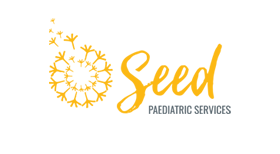Occupational Therapy
We begin with an occupational therapy evaluation designed to get to the root of the problem. We look to identify underlying challenges impacting on your child’s ability to engage in activities of daily life. We see the child through multiple lens based on our knowledge and select a combination of standardised and non standardised assessments. We use a variety of theories and frameworks that inform our clinical reasoning. Following an evaluation, you are provided with a detailed report connecting the threads as to why your child may be experiencing challenges. Our clinicians will discuss this report with you and will be available to answer any questions you may have. We ensure our communication is transparent and provide you with a path to move forward.
Our clinicians will set two to four functional goals which will guide treatment and be used to measure progress. Treatment will occur in a space filled with opportunites for enhanced sensory input including lycra swings, hammocks, inflated air cushions, rope ladders, ramps and lofts. Treatment is playful and your therapist will encourage and motivate your child into choosing activities that will help their nervous systems develop, building strong foundations for higher level skills.
As parents and carers you will be active participants in the therapeutic process. Our clinicians bring knowledge specific to child development which is married with the knowledge you bring of your child’s motivations, desires and strengths. Our clinicians will share our insights with you and empower you to move forward with confidence.
Our clinicians have developed knowledge and expertise in the following areas; Sensory Integration, DIR Floortime Model, Therapeutic Listening, The Astronaut Protocol, Handwriting Without Tears, The Zones of Regulation by Leah Kuypers, the SOS Feeding Approach, The Social Thinking Curriculum by Michelle Garcier Winner. We are inspired by leading clinicians such as Tracy Stackhouse for Sensory Modulation challenges, Beth Osten for DIR Floortime, Sheila Frick and Shelly Lane for their contribution to the neuroscience behind sensory integration, Kim Barthel for her contribution to Trauma and Attachment related disorders in children, Dr Stuart Shanker for his contribution to Self Regulation challenges, Dr Bruce Perry and Dr Bessel Van De Kolk for their contribution to Trauma in children. We are constantly curious and learning, we try hard to understand as much as we can.
Intensives
Intensives refer to a block of treatment such as two treatment sessions per day for a five or ten day period. Intensive treatment can provide powerful acceleration to your child’s progress. The intensive may be recommended for children with significant sensory integration challenges, to kick start progress on a specific area or families who are travelling long distances for service provision.




